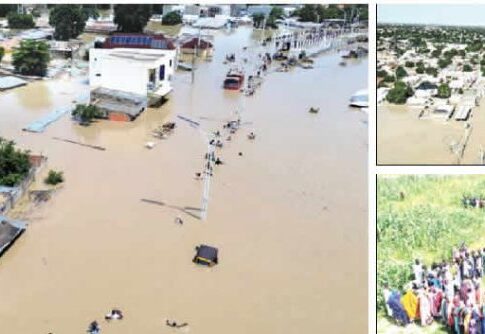The devastating floods that ravaged Maiduguri and other parts of Borno State on September 10, 2024, have left a trail of destruction, displacement, and despair. However, the United States has extended a lifeline to the affected communities, providing crucial humanitarian aid to thousands of victims.
The catastrophic event, triggered by the collapse of the Alau Dam on the Ngadda River, has claimed lives, destroyed properties, and uprooted countless families. In response, the US government, through the U.S. Agency for International Development (USAID), has launched a comprehensive relief effort in collaboration with United Nations agencies and other partners.
USAID’s swift intervention has brought succor to over 67,000 internally displaced persons, who have received emergency hot meals in four camps. Vulnerable groups, including pregnant women, lactating mothers, and children under five, are also receiving life-saving nutritional assistance.
The International Organisation for Migration has mobilized $3 million in USAID funds to support flood recovery efforts across the country. Furthermore, USAID is backing the United Nations Humanitarian Air Service in conducting food airlifts to inaccessible areas in Borno and Maiduguri city.
READ MORE: Residents In Edo Trek To Polling Units As Security Operatives Enforce No-Movement Order
The Borno State government has also witnessed an outpouring of support, with donations exceeding N12 billion from corporate entities, state governments, individuals, and non-governmental organizations.
Catholic leaders in northeastern Nigeria have appealed for prayers and humanitarian support, as the floods have engulfed St. Patrick’s Cathedral, its rectory, and the secretariat of the Maiduguri Diocese, forcing priests to seek safer grounds.
The US Embassy in Abuja expressed deepest condolences to the victims, their families, and all those impacted by this disaster. “We commend the bravery and resilience of the people of Maiduguri and the tireless efforts of first responders, aid workers, and local authorities who are on the ground delivering essential services.”
As the floodwaters continue to disrupt lives, the international community’s support brings hope to the affected communities.




